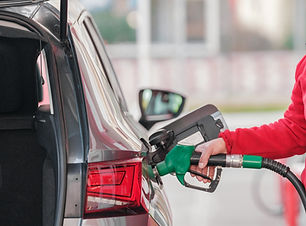


Resources
Resources for Cleaner, Cost-Smart Fleets
Find funding, tools, and practical guidance for idle-reduction, alternative fuels, vehicles, and infrastructure across the Ozarks.
Alternative Fuel Types

HYDROGEN
Hydrogen, when used in a fuel cell to provide electricity, is a zero tailpipe emissions alternative fuel produced from diverse energy sources. Currently, drivers of light-duty fuel cell electric vehicles (FCEVs) can fuel up at retail stations in less than 5 minutes and obtain a driving range of more than 300 miles.

ELECTRIC/EV
Electricity is considered an alternative fuel under the Energy Policy Act of 1992. Electricity can be produced from a variety of energy sources, including natural gas, coal, nuclear energy, wind energy, hydropower, and solar energy. This electricity can be stored in batteries or used to produce hydrogen. Electric vehicles (EVs)—the collective term for plug-in hybrid electric vehicles.

ETHANOL
Ethanol is a renewable fuel made from corn and other plant materials. Ethanol use is widespread, and more than 98% of gasoline in the U.S. contains some ethanol. The most common blend of ethanol is E10 (10% ethanol, 90% gasoline). Ethanol is also available as E85 (or flex fuel)—a high-level ethanol blend containing 51% to 83% ethanol, depending on geography and season—for use in flexible fuel vehicles.
Explore public and private fueling and charging options across OCFC's service area. Use the locator to plan routes, identify corridor gaps, and evaluate host sites.
You'll find DCFC/L2 EV charging, propane Autogas, RNG/CNG, biodiesel/renewable diesel, and more.


